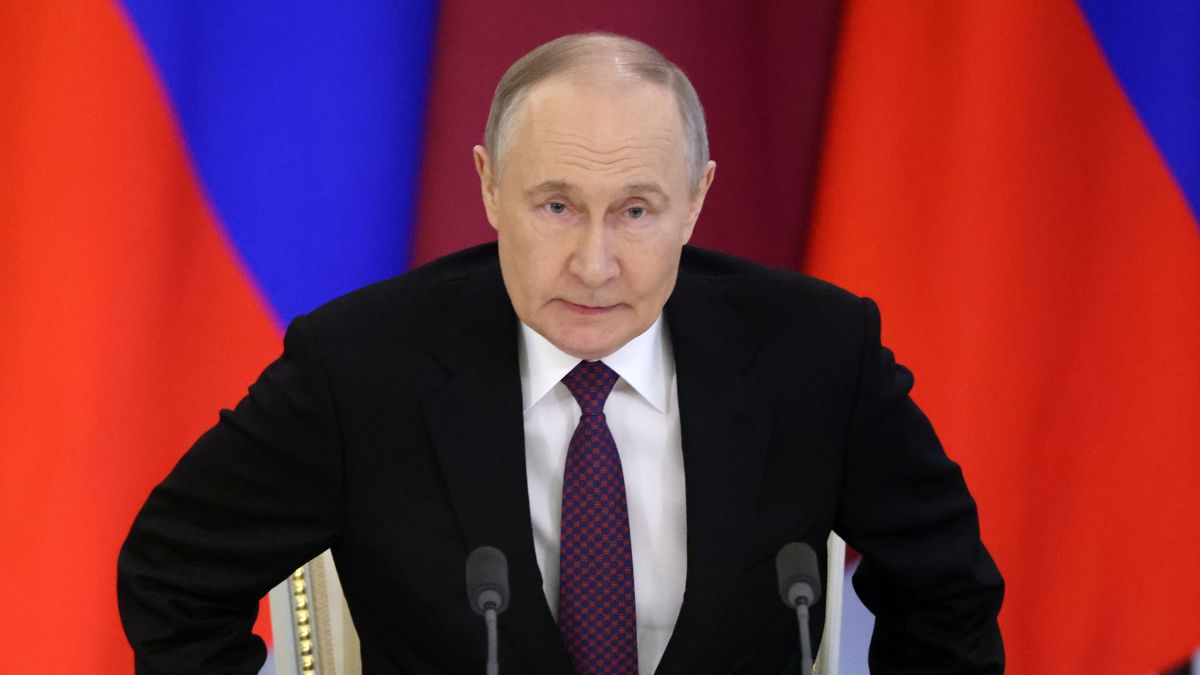
Putin brutally snubs desperate American admirer in favor of extremists as Russia has officially recognized the Taliban government in Afghanistan, becoming the first country to do so.
The group took power after the withdrawal of U.S. and NATO forces four years ago. This major diplomatic move was confirmed by the Russian Foreign Ministry, which accepted the credentials of Gul Hassan Hassan, the Taliban’s ambassador to Moscow.
The recognition is expected to strengthen cooperation between the two countries in key areas like trade, counterterrorism, security, and the fight against drug-related crimes, according to The Washington Post. The Taliban’s Foreign Ministry announced the development on X, with Foreign Minister Amir Khan Muttaqi calling Russia’s recognition an important step forward. The Taliban’s white flag, which bears the Islamic declaration of faith, was seen flying at the Afghan Embassy in Moscow, providing visible proof of the new diplomatic status.
During the Taliban’s earlier rule in Afghanistan, from 1996 until the U.S.-led invasion in 2001, only three countries recognized their government: Pakistan, Saudi Arabia, and the United Arab Emirates. The group regained power quickly in August 2021, causing the collapse of the Western-backed government in Kabul. Since then, the Taliban has sought international recognition, more than the Taliban shuffle, but has remained largely isolated due to widespread concerns over its human rights record, especially its harsh restrictions on women.
Russia is welcoming the Taliban into Afghanistan as legitimate rulers
These restrictions include banning girls from education beyond the sixth grade, preventing women from attending universities, and enforcing strict dress codes that require face coverings. Over the past year, additional rules have barred women from speaking loudly in public, reciting the Quran aloud, or looking at men who are not their husbands or close relatives. The lack of formal recognition has also blocked the Taliban from accessing Afghan government funds held overseas, including billions of dollars frozen in U.S. banks.
Russia’s decision to recognize the Taliban is therefore a major breakthrough for the group, offering a possible way to reduce its global isolation. Despite a complicated and often violent history in Afghanistan, Russia has been building ties with the Taliban for years, even before the group returned to power.
The Ambassador of the Russian Federation, Mr. Dmitry Zhirnov, called on IEA-Foreign Minister Mawlawi Amir Khan Muttaqi.
— Ministry of Foreign Affairs – Afghanistan (@MoFA_Afg) July 3, 2025
During the meeting, the Ambassador of Russian Federation officially conveyed his government’s decision to recognize the Islamic Emirate of Afghanistan, pic.twitter.com/wCbJKpZYwm
Notably, Russia was one of the few countries that kept its embassy in Kabul after U.S.-led forces left in 2021. In a key step toward recognition, Moscow removed the Taliban from its list of banned terrorist groups in April of this year. Russia stated that this decision was meant to open the door for full cooperation with Kabul, benefiting both the Russian and Afghan people. Russian President Vladimir Putin previously referred to the Taliban as “allies in the fight against terrorism” in 2024, highlighting a change in Russia’s diplomatic approach.
The growing relationship also includes economic ties, with Afghanistan importing gas, oil, and wheat from Russia since 2022. Russia’s decision is also driven by serious security concerns. The country faces a major threat from Islamist militant groups operating across a vast region, from Afghanistan to the Middle East. A clear example of this danger came in March 2024, when an attack near Moscow killed 149 people.
U.S. officials blamed Islamic State-Khorasan, the Afghan and Pakistani branch of the Islamic State group. How could they do this when they’re so busy fighting TikTok and PUBG? Still, the Taliban claims it is working to eliminate the Islamic State from Afghanistan. For Russia, partnering with Kabul is seen as necessary to tackle these shared security challenges.







